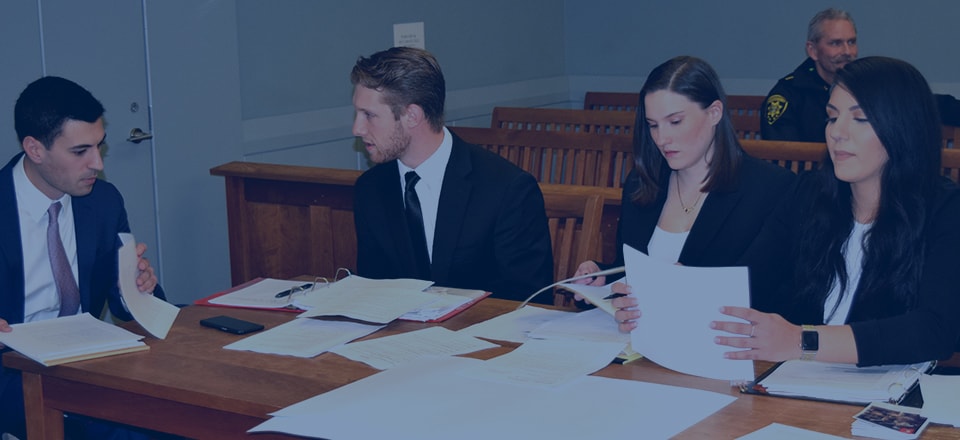Volume 2 - March 2008
Journal RGE
Journal of Race, Gender, and Ethnicity
Volume 2 - March 2008
|
Table of Contents: |
|
|
Stephanie Liantonio, Foreword |
1 |
|
This foreword is a letter by the Editor-in-Chief of the Journal of Race, Gender, and Ethnicity. |
|
Articles |
|
|
Whitney Rivera, Addressing the Real Problem of Racial Profiling in Seattle, Washington |
2-36 |
|
This article explores the problem of racial profiling in Seattle, Washington and examines the ways that the city has attempted to solve this important and insidious issue. Seattle serves as an excellent example of the manner in which society misconstrues the issue of racial profiling for a number of reasons. Seattle has a relatively small black population and the statistics clearly indicate use of race based policing. Public discourse regarding this issue runs high at times and a great deal of debate has occurred surrounding how the local government and police should respond to this problem. Seattle demonstrates that the lingering effects of slavery are not limited to the South and that they can infect a city that often boasts of its open-minded and liberal citizens. |
|
|
Kristina J. Cummings, The Trafficking in Victims Protection Act: A Feasibility Assessment |
37-62 |
|
The effectiveness of any given public policy is a valid concern. In response to the growing problem of human rights violations, the United States passed the Trafficking in Victims Protection Act of 2000 (TVPA). At that time, trafficking in persons (TIP) for various purposes was gaining attention worldwide. Since the passage of the TVPA, the United States and other countries have been constantly battling this breach of human rights. In 2003 and 2005, the United States Congress reauthorized the TVPA. The purpose of this paper is to evaluate the TVPA using Wayne N. Welsh and Philip W. Harris’s guidelines for effective policymaking and to assess the progress that has been made with each subsequent reauthorization. The author concludes that although progress continues to be made in anti-trafficking efforts, significant gains are not likely to result until the TVPA is further refined. |
|
Student-Written Pieces |
|
|
Stephanie M. Adduci, Forgive me Father, for I have Sinned: The Victims, the Abusers, the Church, and the Law |
63-82 |
|
This article explores many facets of the phenomenon of child sexual abuse in the Catholic Church. Part I describes the victims of the church, who they are and what they allegedly endured. Part II explores the abusers of the church, providing the allegations against these priests in number and type. Part III elaborates upon the role of the law in terms of criminal penalties and theories of liability as well as the actions taken (or not taken) by the Church. Part IV addresses the question of the cost of the abuse to the Church, in particular the financial and spiritual cost. |
|
|
Luis Pomares, The Dominican Republic and the United Nations Human Rights Treaty System |
83-102 |
|
Within the United Nations Human Rights Treaty System, there are a total of seven principal (United Nations sponsored) human rights treaties. These treaties stipulate that States Parties submit periodic reports to the respective treaty monitoring bodies on the implementation of their treaty obligations. Following the review of a report, the treaty body in question issues a set of concluding observations, containing its collective assessment of the state's record and recommendations for enhanced implementation of the rights in question. Arguably, the issuance of concluding observations is the single most important activity of human rights treaty bodies. It provides an opportunity for the delivery of an authoritative overview of the state of human rights in a country and for the delivery of forms of advice which can stimulate systemic improvements. |
|
|
Andrea Callan, ESSAY: In Opposition to the Suffolk County Legislature’s Introductory Resolution 2025 |
103-108 |
|
In August 2006, the Suffolk County Legislature debated Introductory Resolution 2025, which would require all companies doing business with Suffolk County under county contracts to ensure and validate that all of their employees have proper working status in the United States. The statute would further impose criminal penalties upon violators in addition to fines up to $1,000 per violation. If a company is found to have three or more violations, they will be barred from doing business with Suffolk County again in the future. The legislation was an effort by Suffolk County to step in where it believed the twenty-year old federal Immigration and Nationality Act (INA) regulation requiring such a verification of workers’ status had failed the county due to lack of enforcement. |
|

